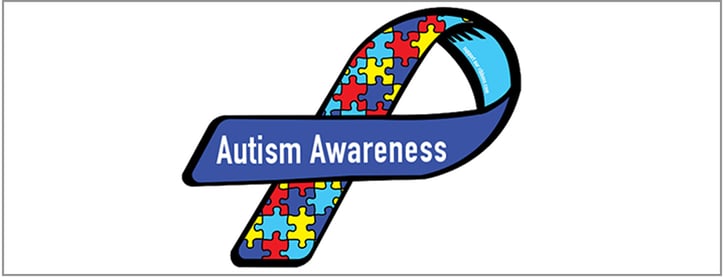 Happy April, everyone! Did you know that this is Fresh Florida Tomatoes Month? Or Global Astronomy Month? Believe it or not, April is home to some interesting monthly and weekly observations. To celebrate, let’s take a look at some of the events, conditions, or diseases being observed this month that also have a corresponding ICD-10 code. First up: Autism.
Happy April, everyone! Did you know that this is Fresh Florida Tomatoes Month? Or Global Astronomy Month? Believe it or not, April is home to some interesting monthly and weekly observations. To celebrate, let’s take a look at some of the events, conditions, or diseases being observed this month that also have a corresponding ICD-10 code. First up: Autism.
Autism Awareness Month. The ICD-10 code for autistic disorder is F84.0. As defined by the code, autism is a disorder beginning in childhood that is marked by the presence of abnormal or impaired development in communication and social interaction. Its manifestations will vary greatly based on the age and development of the child in question. Autism is considered a spectrum disorder, which means that it occurs in a variety of gradations, from very mild to severe. Although by now many people have heard of autism, its causes are still undecided (and somewhat controversial).
April is also Defeat Diabetes Month. There are many ICD-10 codes regarding diabetes, so let’s go over just a few:
- Type 1 diabetes mellitus (E10) is a condition in which the body does not produce any (or enough) insulin, which is why it is sometimes called ‘insulin-dependent’ diabetes. Type 1 is much rarer than Type 2, and is most often diagnosed in children or young adults (it’s sometimes called ‘juvenile diabetes’)
- Type 2 diabetes mellitus (E11) means that your body isn’t properly using the insulin that it does create. Unlike Type 1, it can be treated with insulin or with oral medications. Lifestyle changes (diet, exercise, etc) can make a big difference as well. Type 2 accounts for the vast majority of diagnosed cases - roughly 90-95%
- Gestational diabetes mellitus (024.4) accounts for very few cases of diabetes (relative to the other two), but it can have serious consequences for both mother and child. In most cases, it tends to go away after giving birth, but it can put a woman at increased risk of developing Type 2 later in life.
Irritable Bowel Syndrome is also being observed this month. It’s estimated that 10-15% of Americans suffer from IBS, which is characterized by abdominal bloating, cramping, pain, and constipation, diarrhea, or both. Women are typically diagnosed more than men, and treatment includes changes to diet, lifestyle, and stress management. Thankfully, IBS does not necessarily indicate that a person’s intestine is damaged. The ICD-10 code for irritable bowel syndrome is K58.
April is also a month to learn about Parkinson’s disease (G20). Parkinson’s disease is a condition in which neurons in the brain begin to die off, and result in decreased levels of dopamine. This affects the part of the brain that is responsible for movement, coordination, and balance. The hallmark symptom is tremors of the hands, arms, or jaw (for a long time, the disease was known as ‘shaking palsy’). Like Alzheimer’s, Parkinson’s disease is progressive, and unfortunately has no cure.
As you can see, there are a lot of medical conditions to learn about this month...and there’s an ICD-10 code for each one! If you liked learning about the April observances, please visit our blog to see what was featured in March and previous months. If your private medical practice needs help with the continuing ICD-10 transition, please contact Keystone Health Partners today to see how we can assist!



